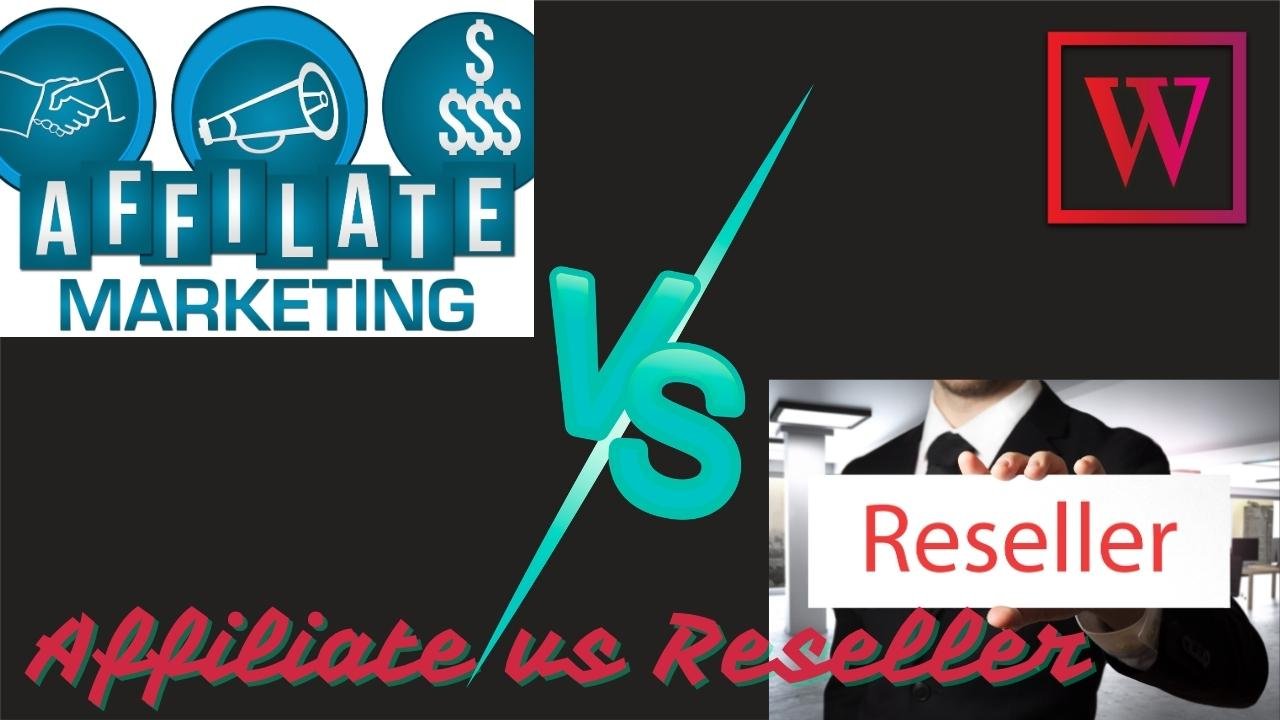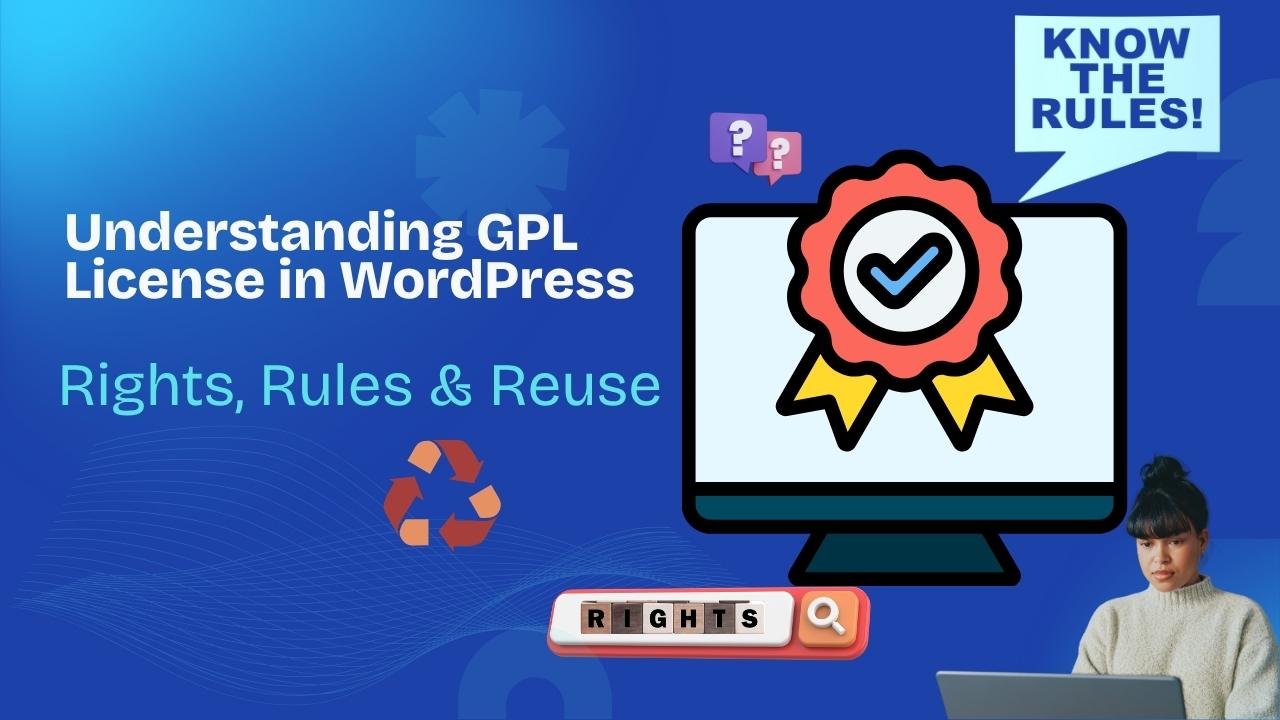Affiliate vs Reseller: What’s Better for GPL WordPress Entrepreneurs?

Discover whether an affiliate model or a reseller model is best for a GPL WordPress business. Learn advantages, risks, revenue comparisons, and which fits your goals as a theme/plugin entrepreneur.
Introduction
If you're building or scaling a GPL WordPress business—selling themes, plugins, or digital tools—you’ll sooner or later face a decision: Should you operate as a reseller (selling under your own brand) or as an affiliate (promoting an underlying provider for commission)? Both paths have pros and cons, and the best choice often depends on your resources, goals, risk tolerance, and long-term vision.
In this article, we’ll
- Define what “affiliate” and “reseller” mean in the GPL WordPress world
- Compare both models (benefits, drawbacks, business mechanics)
- Discuss special considerations for GPL products (themes/plugins)
- Offer recommendations depending on your stage and goals.
- Answer 15 FAQs common to entrepreneurs in this space.e
Let’s jump in.
What Do We Mean by “Affiliate” and “Reseller”?
Before comparing, it's essential to define terms
- Affiliate You refer or send traffic/customers to another provider’s GPL product (themes, plugins, toolkits). If a sale happens, you earn a commission (a percentage or fixed amount). You don’t hold or manage the product yourself.
- Reseller You purchase or license GPL products (or rights to distribute them) and sell them under your own brand or storefront. You take more control of pricing, packaging, support, bundling, marketing, etc.
In practice, there’s overlap. For GPL products (especially because of the GPL license’s freedoms), “reselling” can mean more than traditional reselling, but we'll treat it as the model where you are more involved in owning the customer relationship, packaging, and support.
Affiliate Model: Advantages, Challenges & How It Works
How It Works
- You join a GPL theme/plugin affiliate program (or a marketplace with affiliate options).
- You promote links (via blog posts, reviews, tutorials, social media).
- When someone clicks your affiliate link and completes a purchase, you receive a commission.
- You don’t host or support the product (beyond referring or guiding the buyer).
Advantages of Affiliate Path
- Low overhead / low risk You don’t maintain inventory, licensing systems, or development support. This keeps costs minimal.
- Passive income potential A well-structured blog or site can generate commission revenue even while you sleep.
- Easier to scale You can promote multiple GPL products from multiple vendors; you’re not tied to just one line.
- Less customer support burden You generally don’t handle support, licensing, or updates — the provider does.
- Flexibility & focus You can focus on content, SEO, marketing, and niche authority without managing product logistics.
However, this model also has trade-offs.
Challenges / Drawbacks for Affiliates
- Commission-only income Your margin is limited by what the vendor pays you.
- Dependence on the vendor If they change terms, cut commission, or change product quality, your revenue is affected.
- No control over product or support If the product is buggy or support is poor, your reputation might suffer.
- Affiliate fraud & link hijacking risks Some malicious affiliates or bad actors may game the system. Managing tracking, validating leads, and preventing fraud is a real task.
- SEO / link attribution limitations Many affiliate links use redirection or external domains, which can hinder direct SEO benefit for your own site.
- Conversion uncertainty Sending traffic does not guarantee conversions or commissions.
From the broader hosting or SaaS world, similar comparisons are drawn between reseller hosting vs affiliate programs. For example, hosting providers contrast reselling hosting (you serve customers) vs sending leads for commission.
In the GPL WordPress context, there’s an additional wrinkle: because GPL encrypts freedom to share and modify, sometimes the difference between affiliate and reseller becomes blurred (people may legally “resell” GPL-licensed themes, as long as license terms are honored)
Reseller Model: Advantages, Challenges & How It Works
How It Works
- You acquire rights (or simply the GPL product files) from one or more theme/plugin sources.
- You sell them via your own storefront, branding them (legally) under your brand or packaged bundles.
- You take care of pricing, updates, support (or outsource), and customer experience.
- You build a direct customer relationship and capture margins beyond just a commission.
Advantages of Reselling GPL WordPress Products
- Higher margins/control over pricing Because you're selling directly, you can decide on markup, bundling, subscription models, etc.
- Stronger brand and customer retention People buy from you (not via a middleman). You can build loyalty, upsells, and cross-sells.
- Direct relationship & authority You handle product delivery, support, and trust-building, which enhances perceived value.
- Flexibility to bundle, support, and customizations You can create premium support, add-ons, and services (e.g., installation, customization), making your value ladder richer.
- Recurring revenue potential If you build subscription/licensing models (for support, updates, add-ons), you can sustain income.
Yet, it comes with heavier obligations.
Challenges / Drawbacks for Resellers
- Support burden You’ll likely need to handle customer queries, troubleshooting, updates, bug fixes, version compatibility, etc.
- Operational complexity Licensing systems, updates, version control, payment gateways, refunds — all that web-business plumbing you must maintain.
- Risk management If the underlying GPL product has vulnerabilities or defects, your reputation can suffer.
- Upfront investment Even though GPL removes licensing costs in many cases, you’ll invest time, marketing, infrastructure, etc.
- Competition/price pressure Because many GPL products are freely redistributable, some resellers may undercut you. Differentiation is key.
- Legal / branding compliance While GPL allows distribution, you must not misrepresent origin, violate trademarks, or breach non-GPL files.
One important point: if a GPL plugin or theme truly respects GPL (i.e., full GPL license for code), then any user can legally resell it (given they comply with the GPL terms). The barrier is not legal per se, but business viability, brand trust, support, and differentiation.
Comparison Table: Affiliate vs Reseller (in the GPL WordPress Niche)
Feature / Metric | Affiliate Model | Reseller Model |
Startup cost & overhead | Low | Higher (infrastructure, support, systems) |
Control over product/pricing | Minimal | High |
Revenue potential | Limited by commission rates | Potentially higher margins + upsells |
Support responsibility | Minimal | Major (customer support, updates) |
Brand building & retention | Weak (customer is “vendor’s customer”) | Strong (your brand owns the relationship) |
Risk exposure | Low | Higher (product issues reflect on you) |
Scalability | High (promote many products) | Moderate (scaling support is harder) |
Dependence on the vendor | High | Lower (though still reliant on the underlying GPL source or partner) |
Legal flexibility (GPL context) | Straightforward | Must maintain GPL compliance in distribution |
Recurring / subscription income | Possible (if vendor shares recurring fees) | Easier to build your own recurring models |
GPL-Specific Considerations for Affiliate & Reseller Models
Because WordPress themes and plugins often fall under GPL or derivative licensing, there are some nuances to watch out for when choosing between affiliate and reseller paths
- GPL Means Freedom to Distribute / Modify As long as your distribution honors the GPL terms (e.g., including license texts, not claiming exclusivity, etc.), you have a legal right to redistribute. This means “reselling” GPL is legally permissible (within compliance)
- Non-code assets may have a separate license.s Some products include images, CSS, or documentation under separate proprietary licenses; reselling those might require care.
- Updates, versioning & support chain As a reseller, you might repack or wrap the GPL product. You must stay compatible and be transparent about the original code sources. Also, managing updates is your burden.
- Branding / Trademark / Attribution You cannot mislead customers into thinking your version is the “official” original without authorization, particularly if names/trademarks are protected.
- Undercutting & arbitrage Because GPL allows free redistribution, some resellers may undercut prices aggressively. Your differentiation must come from trust, services, support, quality, or bundled value.
- Affiliate programs for GPL products Many plugin/theme developers run affiliate programs to promote their GPL-compatible offerings. As an affiliate, you need to ensure honest reviews and not violate terms.
- Transparency & ethics Because GPL sometimes gets conflated with “nulled/pirated” products, maintaining trust, transparency, and clean sourcing is vital for your reputation.
Which Model Is Better? Questions to Help You Decide
There’s no one-size-fits-all. Here are guiding questions to help you pick the better approach (or even a hybrid).
- How much time & energy can you devote? If your bandwidth is limited, the affiliate route may suit you better initially.
- Do you want to build a brand or merely monetize traffic? If branding, reputation, and long-term business value matter, the reseller gives more control.
- Can you support customers? If you have support skills or a team to manage customers, a reseller is viable. If not, the affiliate is safer.
- How good is your marketing, authority, and traffic? Affiliates depend heavily on content, SEO, and traffic quality. If your audience trusts your recommendations, affiliates may yield decent returns.
- What margin/commission structures are offered by vendors? If affiliate commissions are high (e.g., 30–50%) and vendor support is excellent, the gap to reseller might narrow.
- Are you comfortable managing updates, patches, and compatibility? Reselling GPL items means you must ensure updates or manage upgrade paths.
- Do you have or plan to build additional services (support, customization, plugins)? Reseller + service bundling can yield greater lifetime value than pure affiliate.
- Is product stability and vendor reliability strong? If the underlying GPL product is stable and supported, both models are safer. If it’s volatile, the risk is higher for resellers.
- Do you want recurring revenue or one-time commissions? Reseller models better allow you to build subscription or upgrade flows.
- Are you okay with vendor changes? Affiliates are vulnerable to vendor commission cuts or program termination. As a reseller, you might have more flexibility or diversify across sources.
In many cases, GPL WordPress entrepreneurs start with affiliate marketing to test demand, build an audience, and validate niches; then transition gradually to reselling (or hybrid) as authority and resources grow.
Tips & Best Practices for Each Path
For Affiliates in the GPL WordPress Niche
- Choose reputable GPL vendors (avoid shady “nulled” sources).
- Write honest, in-depth reviews with use-case demonstrations.
- Use tracking/affiliate platforms that protect against fraud.
- Use “deep links” to relevant plugin/theme pages.
- Build content around SEO (tutorials, comparisons, guides).
- Diversify your affiliate programs (don’t depend on one product alone).
- Monitor commission changes and vendor terms frequently.
For Resellers in the GPL WordPress Niche
- Bundle value (support, setup, customization, training).
- Offer version upgrade or maintenance plans as recurring income.
- Keep up with upstream updates and security patches.
- Build a trustworthy brand and maintain transparency (GPL compliance, sources).
- Provide excellent support and build a client referral engine.
- Implement a licensing or tracking layer (if permissible) to manage customer versions.
- Stay aware of regulations where you resell (tax, reseller requirements).
You could even adopt a hybrid model: be an affiliate for products you don’t want to support, and resell (or partially resell) those you want to brand and support.
Final Thoughts & Recommendation
For many GPL WordPress entrepreneurs, the affiliate path is ideal when you’re starting—low risk, minimal infrastructure, and the ability to test markets. You can build content, traffic, authority, and cash flow without heavy overhead.
As you grow, you may find that a reseller model (or hybrid) unlocks more control, higher margins, and deeper customer relationships. The seller who controls the brand, support, and value-adding services often ends up in a stronger long-term position.
FAQ — Top 15 Questions & Answers
- Is reselling GPL-licensed themes/plugins legal? Yes—as long as you comply with GPL terms (e.g., include license, do not misrepresent origin, maintain open source code). GPL grants freedom to redistribute and modify.
- Are there GPL restrictions on reselling? You can’t impose additional licensing restrictions beyond the GPL. You must preserve copyright notices, allow modifications, and distribute source code or offer it.
- Which model yields more profit: affiliate or reseller? Over time, reseller models often offer higher margins, especially when bundled with services. But early on, an affiliate is lower risk and can validate demand.
- Can affiliates also provide support? Usually no. Affiliates refer the sale; support is handled by the vendor. Trying to offer support might blur lines or violate vendor terms.
- Can I start as an affiliate and later switch to a reseller? Yes, many entrepreneurs do exactly that. Start low cost, learn the market, build a reputation, and then take control as a reseller.
- What commission rates do GPL theme/plugin affiliate programs usually offer? Often in the range of 20%–30% commission. Some recurring models and premium programs may go higher.
- How do I protect against affiliate fraud? Use manual approval of affiliates, track IPs, reject self-referrals, monitor conversion patterns, limit cookie windows, and audit performance.
- Will affiliate links hurt my SEO? Possibly—if links are redirected off-domain or use no-follow. Some affiliate systems use cloaking/redirection, which might reduce direct SEO credit.
- Is support burden the biggest challenge for resellers? Often yes. Customers expect timely updates, bug fixes, compatibility, and help — so the support infrastructure is crucial.
- Can I bundle multiple GPL themes/plugins and resell them as a package? Yes—if all included items are GPL and you comply with their license terms. But ensure compatibility, quality, and maintenance.
- What business model helps with recurring revenue? Reseller models are better for recurring revenue (via support subscriptions, update plans, premium add-ons). Affiliates may also tap into recurring commission programs if the vendor supports them.
- What happens if the original developer discontinues the GPL product? As a reseller, you will need to maintain your own fork or guide customers to alternative products. Affiliates lose the product you promoted.
- Can a GPL product vendor revoke affiliate commissions arbitrarily? Possibly, depending on their terms. Always read affiliate agreement terms — many allow withholding or cancellation in certain scenarios (returns, fraud, policy breach).
- Should I offer refunds / money-back guarantees as a reseller? Yes. Having a fair refund policy increases trust and can reduce objections during sales. But have clear refund rules (e.g., no refunds after 30 days, or only if the customer did not download).
- Is hybrid (affiliate + reseller) a viable path? Definitely. Many entrepreneurs affiliate with many products but resell those they trust or want to brand. This diversifies income and balances risk.
GPL Club Sites vs. Official Theme Developers (2025): Which WordPress Source Is Safe and Worth It?
When you start exploring WordPress themes, one term that quickly appears is “GPL.” You’ll also find GPL club websites promising…
Best Affiliate Marketing Networks & Offerings for GPL WordPress Themes & Plugins in the US/UK (2025)
Looking to monetize GPL WordPress themes and plugins? This 2025 guide compares top affiliate networks (Awin, CJ, ShareASale, impact.com, PartnerStack)…
Best Practices for U.S. Affiliate Marketers Promoting GPL WordPress Themes & Plugins (2025 Guide)
Learn the top strategies for U.S. affiliate marketers to promote GPL-licensed WordPress themes and plugins ethically and profitably. Discover marketing…
Understanding GPL License in WordPress (2025): Complete Beginner’s Guide to Rights, Rules & Reuse
Introduction Learn everything about the GPL License in WordPress — what it means, why it matters, and how it impacts…





